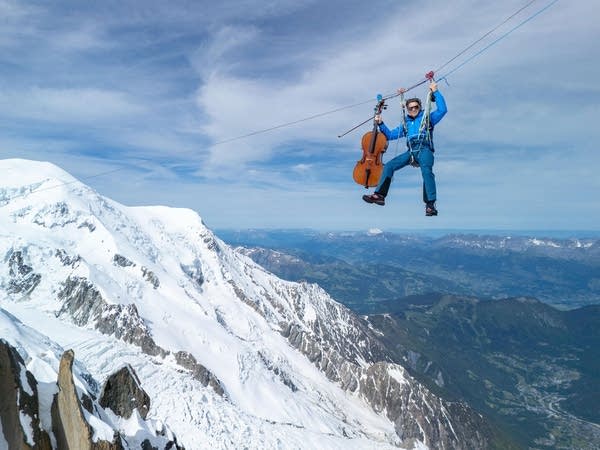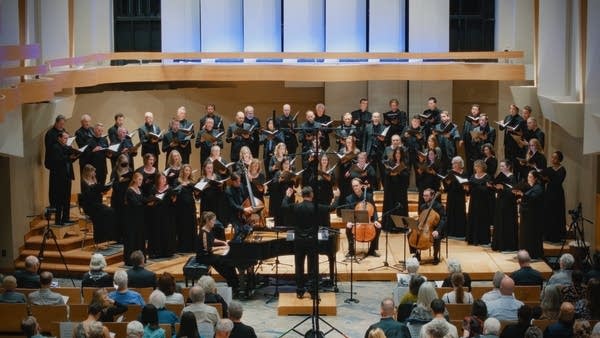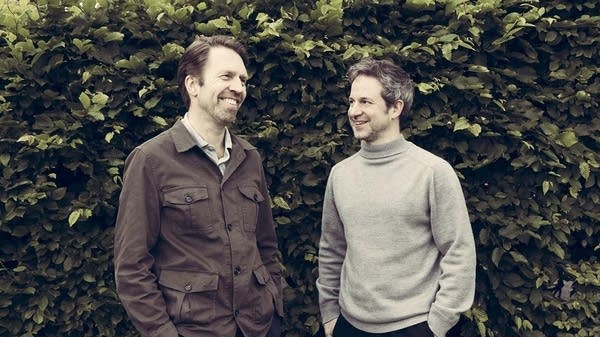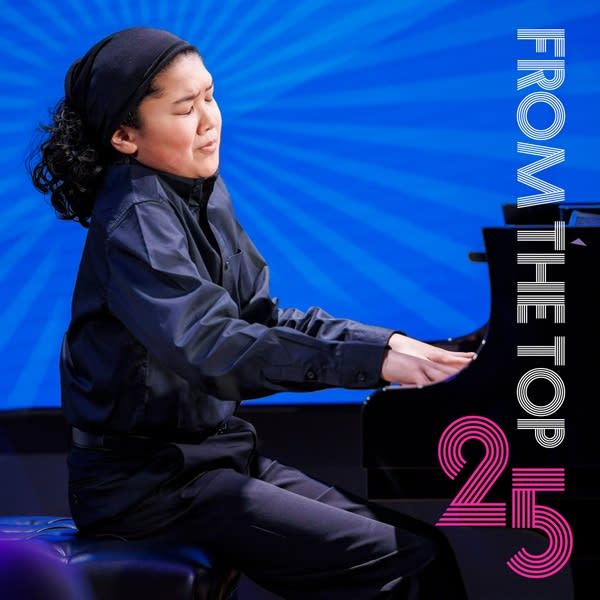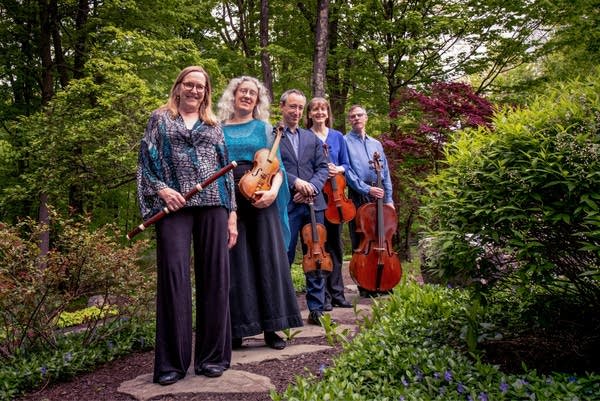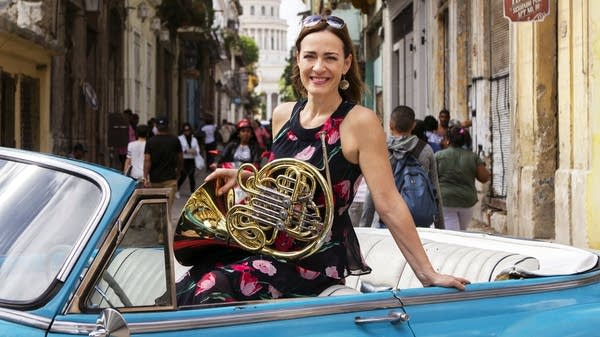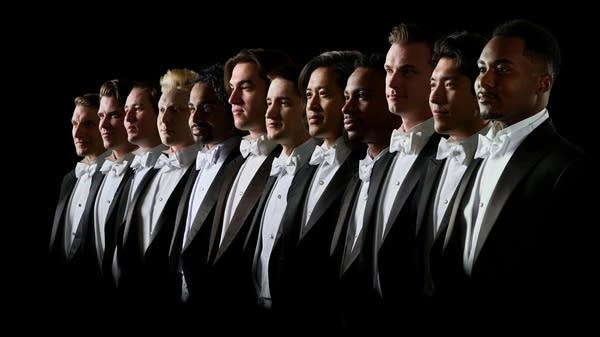
The world of classical music is full of mysteries, large and small. Why is this piece so popular now, but completely reviled in its own time? Why does one composer rise into prominence while others just fade into obscurity? Most of the time, we just have to shrug our shoulders and say, "Who knows?"
However, in the case of Catalan composer Xavier Montsalvatge, who has been rather hidden from view, there's a pretty good reason. It's largely because, for the four decades between the Spanish Civil War in the 30s and the end of Franco's regime in the 70s, Spain was extremely insular. Not a lot of international cross-pollination. Montsalvatge biographer Roger Evans says that was Franco's intent.
"Franco, who was in complete control in Spain from 1939 until his death in 1975, was very careful to keep Spain isolated. The tourist slogan, even, for the official tourist agency, was 'Spain is different,' and they meant it in many ways besides just some attractive diversity. 'Spain is not like you.'"
A new CD featuring a variety of music by Montsalvatge has been released to coincide with the 100th anniversary of the composer's birth.
It starts with violinist Rachel Barton Pine playing the Poema Concertante, a work commissioned by Henryk Szeryng, who wanted a piece he could tour with, that wasn't a concerto. He wanted something along the lines of Ernest Chausson's Poeme, an influence that's not hard to hear.
Influence, lineage, whatever we choose to call it, is palpable through all Montsalvatge's music. In his Cinco Canciones Negras, for example, the Cuban flavor is unmistakable. But, according to biographer Roger Evans, maybe it's not strictly Cuban.
"He wanted to have authentic Catalan elements in his music, but that was not allowed. It occurred to him that the sailors coming back from Havana in Cuba, that he had heard as a child, fixing their nets and so forth on the Mediterranean, were singing songs that were Catalan in origin, but had developed further in Cuba, because Cuba was settled, mainly, by Catalans. What he did was take these Cuban songs and Cuban characteristics of the Habanera, for example, and he edited a book of them and he wrote piano pieces based on the Habanera, and one of his most famous works is a set of songs called Cincos Canciones Negras."
Mezzo-soprano Lucia Duchonova sings the Canciones with the North German Radio Philharmonic.
It's not only the Cuban influence that can be felt in Montsalvatge's music, but also a healthy dose of France — particularly in his Concerto Breve, played by pianist Jenny Lin.
"The French influence is definitely the most obvious. In the second movement, you hear right away the Ravel concerto, because you have the English horn solo in the beginning and you have these very jazzy chords, very impressionist chords. Even lots of passages in the first movement, you hear Ravel with a touch of Stravinsky."
That English horn solo is the emotional center of the concerto, according to Jenny Lin.
"The heart is the beginning of the second movement. That English horn solo is absolutely beautiful. There's really a communication, an exchange between the orchestra and the piano. When the English horn was so beautifully coming in, I was able to have a dialogue with that afterwards."
But the last movement also has its charms. I asked Jenny about the machine-gun repeated notes that begin the third movement.
"Right before the third movement there's this long cadenza, which is an unusual place to put a cadenza. You usually have a cadenza at the end of the first movement, or the third. But he has it at the end of the second, as a transition to the third. So after this long cadenza, you have to straightaway go into these repeated notes. You really have to leave some air or some energy so you can get through those pages and pages of repeated notes."
Jenny Lin says she feels an affinity for this music, partly because it was written closer to her own lifetime. Her concert schedule and CD catalog display a steady stream of "new" music mixed in with the old favorites. But, she's not quite comfortable with the term "new music" in regards to Montsalvatge.
"I think it's very difficult to call this 'new music' because nowadays when we talk about new music, we talk about, oh, I don't know, Stockhausen. This is definitely not Stockhausen. Just as an example, my mother who lives in Taiwan — every time I have a new CD I will send it to her. I've made some CDs that are more on the new side... or not as accessible. So, when I sent her this one, I'm on CD 20 so she just put it in the background. But then she called me right away and said, 'You know, this CD actually sounds really good. I can understand this music.'"
Contemporary music that even mom can love! That's what you'll hear when you dive into this fantastic new CD of hidden gems by Xavier Montsalvatge.
Love the music?
Show your support by making a gift to YourClassical.
Each day, we’re here for you with thoughtful streams that set the tone for your day – not to mention the stories and programs that inspire you to new discovery and help you explore the music you love.
YourClassical is available for free, because we are listener-supported public media. Take a moment to make your gift today.
Your Donation
About New Classical Tracks®
Host Julie Amacher provides an in-depth exploration of a new classical music release each week.
Subscribe on Apple Podcasts, TuneIn, Radio Public, or RSS.


